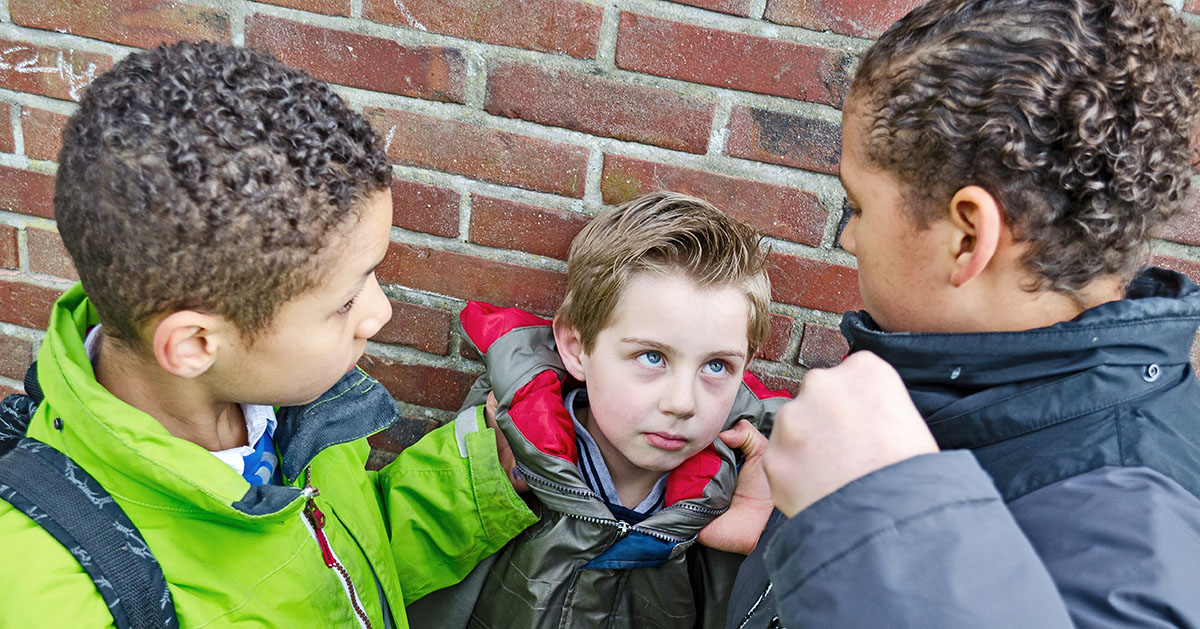How to Prevent Bullying in Middle and High School
One of the toughest things for any parent to deal with is a child being antagonized by a bully or bullies at school and/or online. At your pediatric urgent care Chattanooga, NiteOwl Pediatrics, we know that the safety and health of your children is your family’s number one concern, so we are offering tips to cope with this difficult issue so familiar to many people.
The effects of bullying can include health complaints, lowered grades, and depression or anxiety. Some adults take the attitude that bullying is just a difficult fact of life that every kid has to learn to handle but nothing serious enough to intervene. In reality, failing to take bullying seriously can lead to tragic outcomes. In an era of increased school shootings, parents must be aware of what’s happening to their child because, in very rare instances, bullied children have retaliated through violent measures. On the other side, kids who bully others are more likely to engage in violent behaviors later in life, including abusive to romantic partners, spouses, or their own children.
What to Tell a Child Being Bullied at School
There are things a student can do if they are being bullied. Advise them to:
- Speak Up in a Calm, Clear Voice, telling the bully to stop.
- Walk away, then find an adult to stop the bullying on the spot.
- Talk to someone and make a plan to stop the bullying.
- Stay away from places where bullying happens.
- Stay near adults and other kids.
- Let parents or an adult you trust know about messages you get or things you see online that make you sad or scared.
- Keep passwords secret from other kids and let parents have them.
- Be kind to others and do not share anything that could hurt or embarrass anyone.
If your child is not being bullied, teach them to show kindness to kids who are to let them know they aren’t alone. If your child has ever bullied another kid, encourage them to apologize so everyone feels better.
What Parents Can Do to Stop Bullying
 The first step is being aware that bullying is happening. There is a good chance that adults don’t know all of what happens. A child may fear retribution from a bully if he or she tells an adult about the abuse. A humiliated child may feel helpless and fear being seen as weak or a tattletale. Avoid questioning the children involved in front of other kids, only separately.
The first step is being aware that bullying is happening. There is a good chance that adults don’t know all of what happens. A child may fear retribution from a bully if he or she tells an adult about the abuse. A humiliated child may feel helpless and fear being seen as weak or a tattletale. Avoid questioning the children involved in front of other kids, only separately.
The best thing a parent can do is offer support because there’s an increased risk of suicide if a child does not feel supported by parents, peers, and schools.
The website StopBullying.com advises parents to:
- Talk to your child about being bullied or bullying others so there is no ambiguity in your household about what is acceptable behavior. A child may be bulling others if they are increasingly aggressive, get sent to the principal’s office or to detention, have unexplained new belongings, or hang out with friends who bully others. If your child needs to apologize, pair this with an action such as replacing torn or stolen items with no ones to reinforce age-appropriate consequences for aggressive behavior.
- Look for signs a child may be getting bullied, which may include feeling sick or faking illness to avoid going to school, lost or destroyed possessions, frequent headaches or stomach aches, skipping meals or coming home from school hungry because their lunch was stolen, declining grades, sudden avoidance of social situations, or talking about suicide.
- Model respectful behavior if and when you intervene in a bullying incident. Do not involve the police unless there a weapon is involved, there is sexual abuse, the bully is accused of robbery or extortion, or there are threats of serious physical injury.
- Report criminal acts to community law enforcement.
- Encourage your child’s school to adopt anti-bullying programs and receive training on how to recognize bullying and enforce school policies and rules for addressing it.
- Understand that it is not bullying if two kids in conflict have no perceived power imbalance. Peer mediation may be appropriate for such circumstances.
- Recognize that “hazing” by a group to initiate new members is not necessarily bullying. Avoid direct intervention in gang violence situations, reporting this to the appropriate authorities.
How to Prevent Cyber Bullying Tips
Kids today are sadly accustomed to a new type of bullying that their parents did not have to deal with – aggressive behaviors taking place over digital devices like cell phones, computers, and tablets. It can happen in SMS or text messages, on social media posts, forum messages, or gaming where kids view, participate in or share content. This can include distributing negative, harmful, false, or mean content to cause someone embarrassment or humiliation.
Cyber Bullying can include:
- Sending abusive messages repeatedly through the Internet or by using a mobile phone.
- “Dissing” someone online by sending or posting gossip or rumors about a person to damage his or her reputation or friendships.
- Singling out and/or excluding an individual from a group, then taunting the excluded person.
- Hacking another person's account and posting content or pictures aimed at causing embarrassment or reputation damage.
- Masquerading or impersonation can include theft of another person’s login information to broadcast harassing or humiliating information about the target online.
- Online “grooming” by a predator to solicit trust for the purpose of making criminal behavior easier.
- “Outing” private information for broad public humiliation.
- Phishing to get personal information by pretending to be a familiar, trusted website.
- Sexting to encourage the sending sexually explicit messages or explicit pictures via cell phone or instant messenger.
- Talking someone into revealing secrets or embarrassing information or images online.
In describing the nature of cyberbullying, the National Crime Prevention Council website states...
“typical teen tensions around relationship issues, including break-ups' envy, intolerance, and ganging up, are playing out in a far more dangerous environment. Students, who often lack the moral compass or leadership skills to govern themselves, are increasingly interacting with peers in this unsupervised setting. Adults, who normally would be supervising the lives of teens, are left on the outside - without the technological expertise or understanding of the environment to be of much help. The study suggests that cyberspace operates like the Wild West once did where anything goes. People take the law into their own hands and retaliate because there is no governance structure to protect them from further victimization. Until schools, courts, parents, and internet/technology providers join forces to establish and enforce behavioral standards in cyber-space, students' lives are being negatively affected by a very uncivilized virtual world that is spilling over into their real lives.”
To deal with cyberbullying, parents should:
- Talk to kids and remind them that information communicated electronically is permanent and public, if not reported and removed. A negative online reputation, including for those who bully, can impact college admissions, employment, and other areas of life.
- Place the computer in a family room or somewhere visible - or work out a plan with them that lets them know that technology is a privilege that comes with responsibility.
- Establish rules for what is appropriate behavior, use of apps, and creating or sharing content. Use an 'Internet Use Contract' and a 'Mobile Phone Use Contract' to create clear and understandable rules about what is acceptable and what is not: Make sure you and your children sign the contract and agree to the terms.
- Place the contracts in a visible place, such as near the computer.
- Monitor a teen’s browsing history if there are concerns about cyberbullying.
- Know your child’s usernames and passwords for email and social media.
- Teach children to save harassing messages to share with teachers, counselors, parents, etc. Also, let them know they can disengage rather than respond or adjust their privacy settings as needed.
- Review or re-set the location and privacy settings on your child’s devices.
- Follow or friend your teen on social media sites – or have another trusted adult do so.
- Print copies of messages. If the perpetrator is known and cyberbullying is continuing, contact the child’s parents and share your evidence.
More Resources: ways to prevent bullying in school
To learn more about bullying and how to deal with it, we recommend these websites:
https://www.apa.org/helpcenter/bullying https://www.scholastic.com/cyberbullying-what-teachers-and-schools-can-do/ https://www.commonsensemedia.org/ https://www.connectsafely.org/ https://www.teachthought.com/
Photo: © Marcel de Grijs / 123RF Stock Photo
Blog © 2018 NiteOwl Pediatrics 7320 Shallowford Road Suite B, Chattanooga TN 37421
